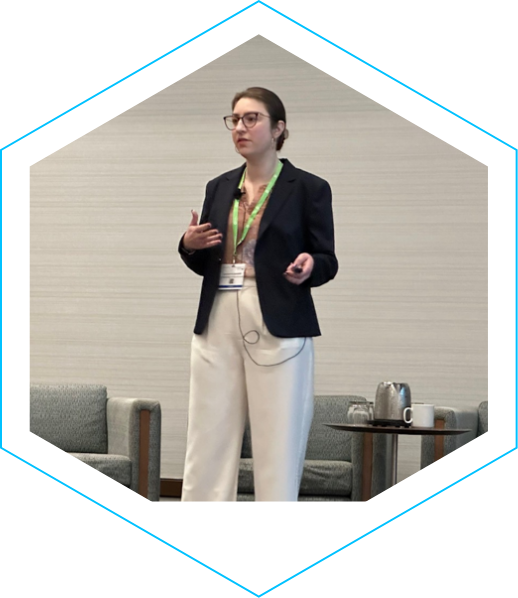
VIRTUAL TRAINING EVENT | An Introduction to Chemical Engineering Science
Event overview


We are now delighted to offer this course VIRTUALLY, this three day course has been divided up into FOUR afternoon sessions and then an additional three optional modules to further your knowledge in Chemical Engineering. The course will be delivered virtually via an on line platform and there will be an opportunity for interactive sessions and questions to the tutors.
The Four day sessions will take place on the following dates and times UK time, information on the modules is listed below
Monday, November 2nd | 2.00pm – 5.00pm, GMT
Tuesday, November 3rd | 2.00pm – 5.00pm, GMT
Wednesday, November 4th | 2.00pm – 5.00pm, GMT
Thursday November 5th | 2.00pm – 5.00pm, GMT
R&D scientists are often at a disadvantage when working in process research and development because of their lack of knowledge about the basic principles of chemical engineering, and the impact of decisions regarding process yield and selectivity on up- and downstream operations. Other branches of engineering face a similar disadvantage when considering the whole process.
This course has been developed, and is presented, by chemical engineers and chemists who specialise in facilitating knowledge transfer and understanding between different scientific and engineering disciplines working at the R&D-manufacturing interface. As a result, it does not dwell on the derivation of mathematical formulae or equations used in chemical engineering design, but instead focuses on what other disciplines need to know about the information and data that chemical engineers require for design, scale-up and process troubleshooting.
Chemical engineering without mathematics is impossible, but this course presents only relevant mathematics at a level that should not trouble anyone with a numerate scientific degree. Other disciplines do not need to know how to design plants or equipment and this course does not attempt to teach this. The course focuses on understanding chemical engineering principles to promote clear communication between disciplines, facilitating information and knowledge transfer.
EXTRA SESSIONS AVAILABLE:
Module 1: Fluid Transfer and Mixing | Monday, November 16th
2.00 – 5.00pm GMT
Module 2: Mass Transfer Applications | Tuesday November 17th
2.00 – 5.00pm GMT
Module 3: Heat Transfer Equipment and Drying | Wednesday, November 18th
2.00 – 5.00pm GMT
You can add these modules to your booking of this course, or you can book onto them individually using the links above to the specific module pages. If you book the Chemical Engineering course and 2 modules, you get your 3rd module free.
Course Outline
Based on the well-received face-to-face offering, this course has been structured to provide flexibility in a virtual training environment. Interactivity is retained by enabling participants to split out into virtual break-out rooms to work on examples that help cement understanding of the material presented. The course has been split into a series of core modules providing an Introduction to Chemical Engineering Science (four, 3-hour sessions) and a series of elective modules covering some practical applications of the material from the Introduction.
Introduction to chemical engineering science
What is chemical engineering?
- What do some chemical engineers do?
- Dimensionless groups
- Process representations and their uses
- Conservation of mass and material balances
- Conservation of energy and energy balances
Fundamental fluid mechanics
- Basics of fluid behaviour
- Fluid properties
- Flow measurement
Heat transfer fundamentals
- Fundamentals of conduction and convection, heat transfer coefficients
Mass transfer fundamentals
- Introduction to mass transfer
- Phase equilibria
- Mass transfer coefficients
Reaction engineering
- Reaction engineering principles
- Simple approaches to reactor design and selection
Course Objectives
- Chemists, biologists and engineers regularly interact and collaborate in process R&D projects. For effective team working they should each understand the needs and objectives of the other disciplines.
- This course gives scientists and other engineering disciplines an introduction to the main aspects of chemical engineering science that will help them realise the importance of the subject. It introduces and describes core principles of chemical engineering and how process technologists can provide data and information to support the chemical engineers in their work. The course will help other process technologists appreciate the role of chemical engineers and assist in understanding their requirements.
- The course will equip process technologists with a sufficient understanding of chemical engineering to foster better communication with chemical and process engineers. It will enable delegates to be aware of the impact of chemical engineering principles on successful scale-up and process problem solving. The principle aim is that delegates will be able to discuss chemical engineering issues affecting their processes and relate them to their own areas of expertise.
Optional Extra Modules
To complement this course, Britest are delighted to offer three additional modules that will further your knowledge in Chemical Engineering. You will be able to select these courses during your booking process, each module is priced at £195.00 each, please note if you select all three modules you will receive one FREE. This discount will be applied upon registration and check out.
Fluid Transfer and Mixing – Elective Module 1 | Monday, November 16th
2.00 – 5.00pm GMT
This one day short course will look at:
Fluid transfer systems
- Reynolds number
- Pressure drop in pipes
- Types of pump and pump selection
Liquid mixing
- Applications of mixing
- Types of agitators
- Mixing regimes and their effects on process
- Solid-liquid and gas-liquid mixing
Mass Transfer Applications – Elective Module 2 | Tuesday November 17th
2.00 – 5.00pm GMT
This one day short course will look at:
- Introduction to column contactors
- Gas absorption
- Distillation
- Solvent extraction processes and equipment
Elective Module 3: Heat Transfer Equipment and Drying | Wednesday, November 18th
2.00 – 5.00pm GMT
This one day short course will look at:
Heat transfer utilities and equipment
- Types of heat transfer equipment
- Heat transfer in batch vessels
- Evaporation
- Joule-Thomson effect
Drying
- Humidity and the drying process
- Application to solvents
- Dryer design & equipment
You will also have the opportunity of booking these courses separately too if you prefer to only attend the Modulese, Module 1, Module 2, Module 3
What's Included
The course fee includes:
- all four sections of the course
- course certificate at the end
You will have the option of buying a hard copy of the manual and this will be sent via the post to you. Please note for on line courses no PDF version of the slides/manual will be sent via email and no recordings are available after the event. Please note recordings of any sessions will not be shared.
Other Information
Prices
The cost of the Introduction to Chemical Engineering Course, you will be able to select your preferred currency:
£775.00 per person
$985.00 per person
€830.00 per person
VAT will only be charged to companies based in the UK and selecting £Sterling
Additional Modules
Each optional module are charged at £195.00 each, if you choose all three modules, you will receive on course FREE only if booking with the Chemical Engineering Course
Course Certificate
At the end of each course participants receive a Certificate of Attendance – signed by your tutor.
VIRTUAL TRAINING EVENT | An Introduction to Chemical Engineering Science
Fee info
It was good. Never visited a Scientific Update conference, but will get it on my priority list. Very good – like the set-up, flow and topics. Very interested in process development.
Organic Process Research & Development Conference Delegate 2023
Thank you for the excellent conference. I enjoyed the scientific content and the networking opportunities. I will definitely recommend this conference to my colleagues.
The Formulation and Drug Delivery Congress Delegate
Become a speaker at one of our events
Share your expertise with a global audience of industry professionals. Scientific Update is continually seeking thought leaders and industry innovators to speak at our renowned conferences and training courses.








